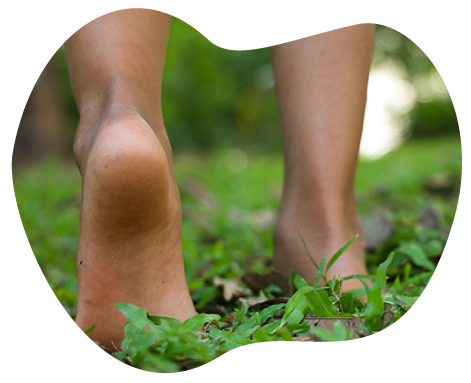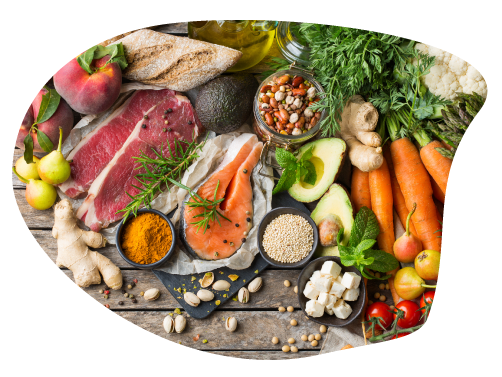
Balanced Nutrition and Hydration
(To exit this page, click on the "X" in the upper right corner. Scroll down to read Sleep section.)
Balanced nutrition and hydration are the second of the four physical roots of a healthy lifestyle. Again, we are intentional in choosing the word “nutrition” over “diet” or such. What our body needs is nutrition, not diet. Yes, diet is common vernacular for what we eat, but the term diet also has a lot of negative connotations, especially for those of us who have gone on diets and failed to maintain or succeed in terms of the diet goals.
We also chose "hydration", because we may drink a lot of fluids and yet may not be functionally hydrating our body. Drinks like coffee, tea, alcohol, and soda can have a diuretic effect on your body so even though you’re drinking fluids you may not be effectively hydrating your body, in fact in some cases you may actually be dehydrating your body.
Let’s look at nutrition first. Nutrition provides fuel for our body to move and perform its countless functions. That fuel converts to energy and even though the body needs a complex mix of vitamins, minerals, protein, fat and carbohydrates, varied and healthful nutritional choices can provide those components pretty readily.
What is deemed to be healthful nutritional choices will always raise a lot of competing opinions and thoughts, but there are a couple of simple rules of thumb to help steer you in the right direction.
1. Eat low on the food chain. This is a simple way to differentiate between food and foodlike substances. Foodlike substances have been heavily processed and contain a lot of ingredients of which many are unrecognizable to the average person reading the ingredient label.
In fact, the more ingredients a food product has, the less likely it is going to be great for your body. Food in its simplest state is more likely to be good for you than food that has a lot of additives and has gone through a lot of processing and refinement. Our bodies typically love vegetables, fruits, whole foods and foods rich in fiber. Most of us are aware of what foods are healthy and making more healthy choices over time will pay great dividends.
2. Eat a variety of foods. Diets that promote one food to lose weight are not sustainable and are unlikely to succeed. At the simplest level, your body will not get the requisite vitamins, minerals and components needed for balanced nutrition when you consume a very limited array of foods.
3. Eat smaller portions. What we mean by this is to spread your nutritional input out and avoid big meals where possible.
We believe eating too much in a sitting, especially at night, is tough on your body so we recommend eating small meals throughout the day.
4. Try and keep your input balanced against your output. Meaning, if you exercise a lot, eat more. If you don’t do a lot of exercise, eat less. Your body will seek balance and if you listen to it, you can usually feel when you’re out of balance.
5. That leads us to our last point on nutrition. Avoid the scales. Judging your state of health or wellness by the scales is fraught with peril. We suggested in the previous point to listen to your body. Too often we ignore our body's many signals and sometimes warnings because we don’t listen to how we feel. Those are hard things to grasp when we’ve ignored our body’s many cries and too often listened to its cravings. Simple examples of listening to your body would be if you feel energetic, that’s a good sign. If you feel lethargic, that’s probably a bad sign.
Speaking of lethargy, very often we can feel lethargic when we are dehydrated.
Hydration is critical to all bodily functions and when we are well hydrated, our sleep, cognitive function and mood can all improve.
 Hydration of the body is crucial for many reasons. It helps regulate our body temperature, deliver nutrients to cells, provide joint lubrication, and allows our organs to function effectively.
Hydration of the body is crucial for many reasons. It helps regulate our body temperature, deliver nutrients to cells, provide joint lubrication, and allows our organs to function effectively.
All these things can help improve our energy, promote healthy weight loss, improve skin tone, remove toxins from our system, and help keep us regular.
When it comes to choosing what to drink water is the stand out. Obviously water is in many drinks, but other components in those drinks, such as sugar, caffeine and alcohol can offset the hydration benefits of the water by itself.
There are also a lot of mixed opinions about sports drinks. When we dehydrate we also lose electrolytes, especially sodium.
Even though many sports drinks have sodium and other electrolytes added, they can also contain sugar, artificial colors, flavors and additives. Mineral water usually contains sodium and can be a refreshing drink as well as replace some of the sodium lost during activity. Pure coconut water is also a great alternative electrolyte drink that doesn't contain any unwanted ingredients.
The level of your activity and many other factors influence the amount of water you need, but if you feel lethargic, have a headache, or dry mouth, then you should try drinking more water. Instead of defaulting to a cup of coffee when you’re feeling tired, maybe try a glass of water and see if you feel the difference.
Essentially, we should drink plenty of water each day, and that may constitute 8-10 glasses or so.
Your body is an incredibly powerful system that will work very well, given the right ingredients.
When you’re thoughtful about your food and water intake, you’ll notice a positive difference in many aspects of your life.




![]() 0475 866 592
0475 866 592





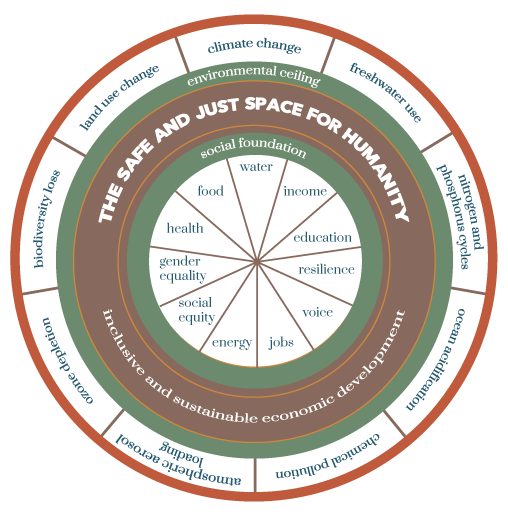

 Very often, we find ourselves out of balance when we’re not making enough money to be relatively free of stress (even if we’re doing something we love), or alternately making a lot of money but with no joy attached to that pursuit.
Very often, we find ourselves out of balance when we’re not making enough money to be relatively free of stress (even if we’re doing something we love), or alternately making a lot of money but with no joy attached to that pursuit.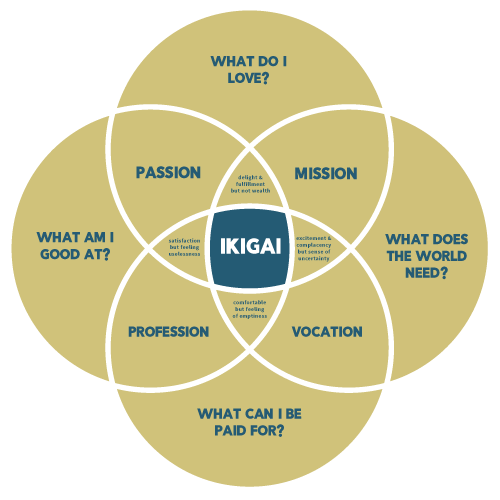
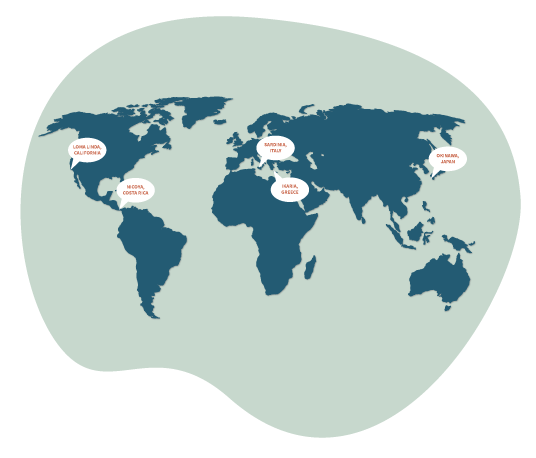
 Healthy Relationships
Healthy Relationships
 This process may sound daunting as many of us don't feel compelled to address the parts of ourselves we either do not know exist or are too afraid to face. But those of us brave enough to set out on this journey find it incredibly liberating and rewarding. What's more, the positive changes we make resonnate throughout the rest of our lives and in all of our relationships.
This process may sound daunting as many of us don't feel compelled to address the parts of ourselves we either do not know exist or are too afraid to face. But those of us brave enough to set out on this journey find it incredibly liberating and rewarding. What's more, the positive changes we make resonnate throughout the rest of our lives and in all of our relationships.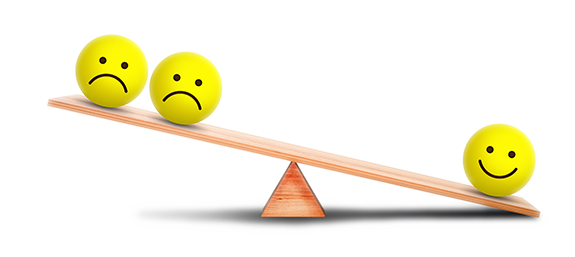 Stress Management
Stress Management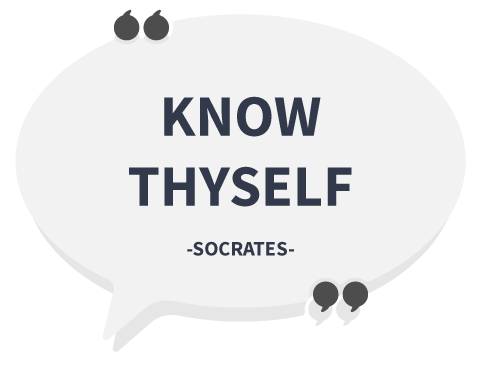 The relentless introduction of technology into our lives, our rapidly changing societal expectations (some call these "programs") around success, achievement and acquisition, not to mention the global pandemic, all contribute to countless stresses in our lives.
The relentless introduction of technology into our lives, our rapidly changing societal expectations (some call these "programs") around success, achievement and acquisition, not to mention the global pandemic, all contribute to countless stresses in our lives. Conscious movement is the first of four physical roots of a healthy lifestyle. We intentionally choose the word "movement", because
Conscious movement is the first of four physical roots of a healthy lifestyle. We intentionally choose the word "movement", because 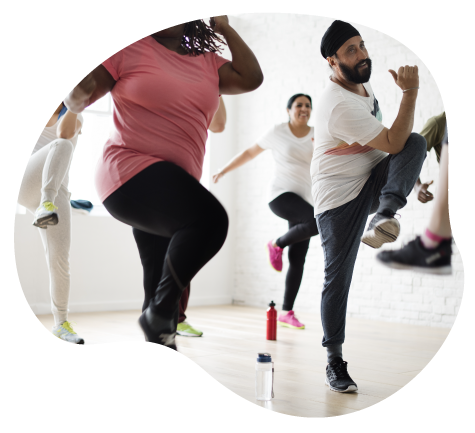 If you can’t find any form of exercise that you find palatable, then find a reason to motivate movement in spite of your reticence.
If you can’t find any form of exercise that you find palatable, then find a reason to motivate movement in spite of your reticence.
 Hydration of the body is crucial for many reasons. It helps regulate our body temperature, deliver nutrients to cells, provide joint lubrication, and allows our organs to function effectively.
Hydration of the body is crucial for many reasons. It helps regulate our body temperature, deliver nutrients to cells, provide joint lubrication, and allows our organs to function effectively. Sleep Better
Sleep Better If you answered
If you answered 